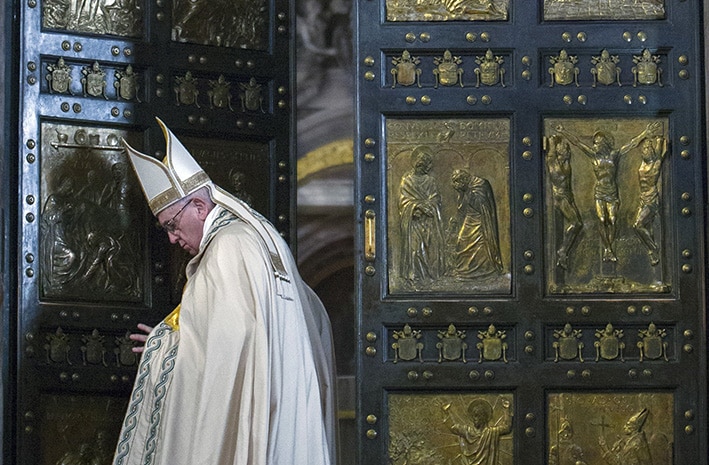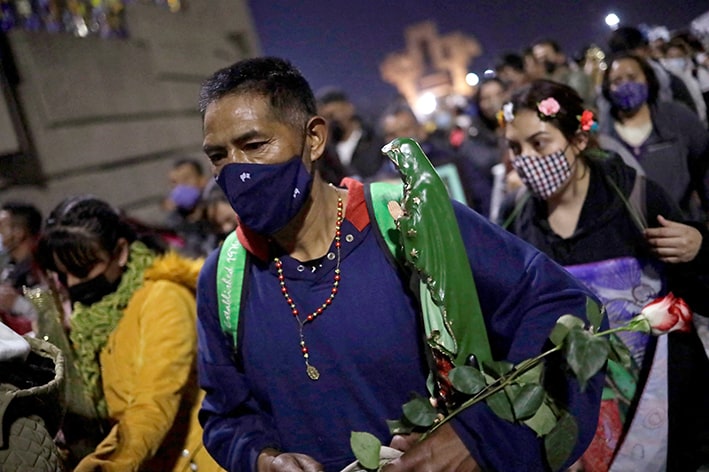
Hope is only truly received when we adopt it and strive to live it
In news that may have slipped under the radar over the Australian summer, Pope Francis approved the theme for a Jubilee Year to take place in 2025. With ancient roots, a Jubilee in Christian tradition is held every 25 years and invites the faithful to a year of conversion and repentance, a time of reconciliation and justice, a time in which all things that belong to God are returned to God.
In announcing the theme for the 2025 Jubilee as “Pilgrims of Hope”, Pope Francis brings together two themes which shed light upon our mission, not only for our future as the Church in Sydney but even today as we enter a third year of pandemic and the demands of a new year.
The image of a ‘pilgrim Church’ was brought to the fore at the Second Vatican Council, recalling for the Church its nature as a community of disciples journeying through human history. Through trial and tribulation, the pilgrim people of God orients itself to the fullness of God’s kingdom, engages with and sanctifies the concrete realities of its time, and commits itself to a path of ongoing conversion, including penance and renewal, before God until it ‘arrives at the light which knows no setting’ (Lumen Gentium 8).
The Church undertakes this pilgrim path not out of its own resources, nor as a people of unblemished holiness, but in complete dependence on the Holy Spirit. It is the Spirit who enables and guides the Church in its pilgrimage to be faithful to Jesus in the present and to renew itself without ceasing so that it may bear fruit in the world as Jesus bids us.
Similarly, the Jubilee theme of ‘hope’, rather than promoting the Church as a naïve society or program for positive thinking, challenges the Church to radical discipleship and outwards mission. Living as a person of hope necessitates the courage to commit one’s self by a daily response to God as our future. This grace of hope not only comforts us by awakening us to the presence and love of God but also disrupts us by urging us on, to the renewal and conversion that this great love invites.
The hope we have as the baptised by our adoption into Christ and the reception of God’s grace in the Eucharist and other sacraments asks something of us.”
Daniel Ang
So we not only “hold” hope as it were but are compelled to “live” hope, to embody it in our actions and practical commitments to love God and our neighbour even when the loving is hard. Like Abraham, we can find ourselves at times “hoping against hope” (Romans 4:18) but “nevertheless” we hope.

So it is that the Church’s opposition to euthanasia, abortion, slavery and other forms of injustice expresses our hope for every human life. Our spiritual and corporal works of mercy demonstrate that suffering and even death are not ‘the last word’ in the human story; that each of us has hope in a future, an ‘eighth day’ opened to us by the crucified and risen Christ. The simple act of prayer is an embodiment of our hope as it brings together our human desire and God’s providence into the present.
So too the efforts of thousands of Sydney Catholics in our parishes, chaplaincies and movements who recognise the need for renewal, who earnestly desire their own discipleship and that of their parishes to become ever more missionary. Such priests, religious and lay leaders declare their hope in the Church by their active witness, generosity and compassionate care for others. In the sacraments of the Church we recognise hope not as a vague sentiment but always concrete and demanding.
The hope we have as the baptised by our adoption into Christ and the reception of God’s grace in the Eucharist and other sacraments of faith asks something of us. Akin to love itself, hope is only truly received when we decide and strive to live it in our days.
In a culture of cynicism and division, one deeply marked by a myriad of anxieties and temptations to despair or inertia, Christ remains our abiding hope. It is a hope that never leaves us where we are but, rather, stirs us to pilgrimage, to practising our hope through the renewal of our parishes and the conversion of our lives.
Related:
